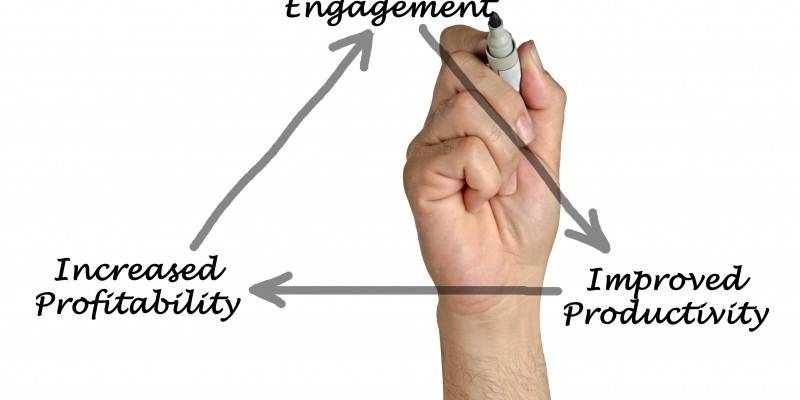
It is perhaps an overused cliché to suggest the key to success in any business are its people, but the evidence seems irrefutable – companies who truly engage their employees achieve business success. Those who treat people as assets or worse simply numbers do not. So how do we get the most from our greatest assets – our people?
What is Employee Engagement?
So to begin this, we first need to understand what employee engagement is and is not.
We have probably seen many different definitions of employee engagement, but for me they all ultimately share the same three fundamental elements:
- Employees Feel Safe
- Employees Feel Listened To
- Employees Feel Part of Something Bigger
Consequently, the degree to which each of the above elements are met, drives the culture or ‘feel’ of the organisation and the way people perceive working for us.
One word of caution. employee engagement is not a destination or target that can be achieved and then discarded – it is a journey, much like life, which is always evolving with both its ups and downs.
Employees Feel Safe
To be able to perform anywhere near to our potential, we must firstly and fundamentally feel safe and secure. This is the foundational element of engagement, without which we cannot hope to get the best from our people. If we were to picture engagement as a bridge (Elliott & Corey, 2018), then safety would be the pillars on which the bridges weight is supported. If these are not soundly built, the bridge will never be able to hold the weight of the other elements.
But how do we make someone feel safe? Well we can break this down into physical and emotional safety. In terms of physical safety, this is about providing a working environment which protects their physical and mental wellbeing and allows the employee to perform at their best all of the time. With emotional safety it is about making our people feel supported and valued in their work. This includes people feeling they are getting rewarded and recognised for their efforts. It also means that leaders and managers have their backs when things go wrong or they make mistakes so they are comfortable and feel supported to take responsibility and ownership for their actions.
Employees Feel Listened To
In many companies, communication is often cited as the biggest gripe employees report - the feeling that they don’t know what is going on outside their team and that they don’t have a voice that is heard by those running the business.
Open and honest two-way communication is the key. Employees want to feel they understand what is going on in the company (both good and bad); can raise their concerns and issues with their managers and leaders (without fear of retribution) and know that actions are taken to address them. It is also important that leaders are open to share their vulnerabilities for people to feel comfortable to do the same.
Employees Feel Part of Something Bigger
We live now in a more connected world than ever before and where our individual actions have more and more meaning in our global society. We hence need to help our employees to understand the purpose of what they do and how these feeds into the bigger picture or purpose in terms of the success of the company and the wider world. This is most relevant for the younger generations such as Millennials and Gen Z who now form the largest proportion of people in the workplace.
Why Is Engagement Important?
So great, we now understand engagement a little better – but so what? Providing a fluffy, supportive and open environment for people to work in isn’t going to magically improve profitability or help generate more turnover – or is it?
Well, the answer, perhaps surprisingly to some, is yes it will.
With better engagement comes better retention of our existing people and the ability to attract the best talent to help grow the business. With happier staff comes better delivery and customer satisfaction, which in turn leads to repeat business, new clients and larger revenues. With invested employees comes greater innovation, leading to smarter solutions and ways of working which reduce operating costs. So, in short, engagement makes a positive difference to a business’s bottom line.
What Next?
Put into sharp focus by the current pandemic and a world that is moving ever faster, businesses are increasingly realising the importance people make to achieving success. Consequently, we understand that to get the best from our people we need to truly engage them by providing a safe, supportive and inspiring environment for them to work in.
Some of you might be thinking this is all very well and good but it does not apply to me and my business, but the truth is engagement is universal in its applicability. Whatever our sector, our size or our wealth – better engagement equals better results.
So, let us all commit to make a change for the better. Measure where we are; understand where we want to be and commit to make those changes. Not only because it is the right thing to do for the prosperity of our business but also because it is the right thing for our people. After all, don’t we all deserve to be happy and fulfilled in our work and our lives?
References
Elliott, G., & Corey, D. (2018). Build it: the rebel playbook for world-class employee engagement. John Wiley & Sons Ltd.
- Log in to post comments
